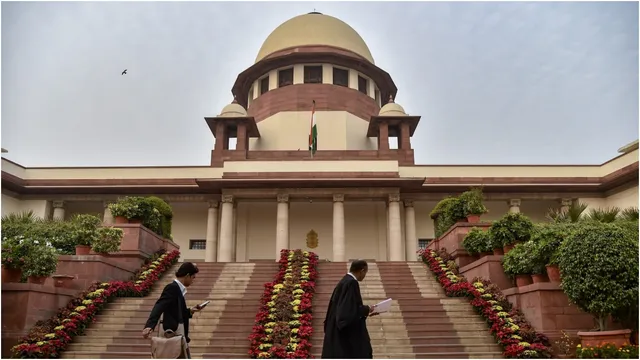- By Shubham Bajpai
- Sat, 16 Aug 2025 03:31 PM (IST)
- Source:JND
The Central government has warned the Supreme Court against setting a timeline for the President and the Governors to decide on the pending bills, saying that it will lead to constitutional chaos.
Solicitor General Tushar Mehta in his written submission to the court said that such timelines would give one organ of the government a chance to usurp powers that are not vested in it and thereby upset the delicate separation of powers.
Challenging the top court's directive to impose a timeline, Mehta said, "Even under its extraordinary powers vested in Article 142, the Supreme Court cannot amend the Constitution or defeat the intent of the Constitution makers, provided there are no such procedural mandates in the constitutional text".
Mehta added that there may be "some limited problems in implementation" of the process of passing of the bill, but it can't be used as a pretext to reduce "the higher office of the Governor to a subordinate one".
He also said that lapses should be redressed through political and constitutional mechanisms, and not through 'unwarranted judicial' interventions.
What is the row?
On April 12, the Supreme Court bench of Justices JB Pardiwala and R Mahadevan was hearing a petition of the Tamil Nadu government against the Governor regarding the assent process.
The top court decided a timeline of 3 months for the President and 1 month for the Governors to decide on the bills. While the Tamil Nadu government welcomed the decision, it drew sharp criticism from the government and President Droupadi Murmu, who quizzed about the constitutionality of such timelines.
Droupadi Murmu invokes 16th Presidential Refrence
President Murmu invoked her powers under Article 143 of the Constitution and posed 14 questions to the SC. She sought its opinion on the powers of the President and Governors under Articles 200 and 201 in dealing with bills passed by the state legislatures.
ALSO READ: MK Stalin's 'Fear Of Court' Jibe At Tamil Nadu Governor RN Ravi As He Clears Two Bills
In July, Chief Justice of India BR Gavai fixed a schedule for hearing the Presidential reference case to decide on these 14 questions. The five-judge bench with the CJI, Justices Surya Kant, Vikram Nath, PS Narasimha, and Atul S Chandurkar will hear the Presidential Reference.
The bench had directed the Centre and states supporting the Presidential Reference to file a written submission by August 12. The case will be heard on August 18.

